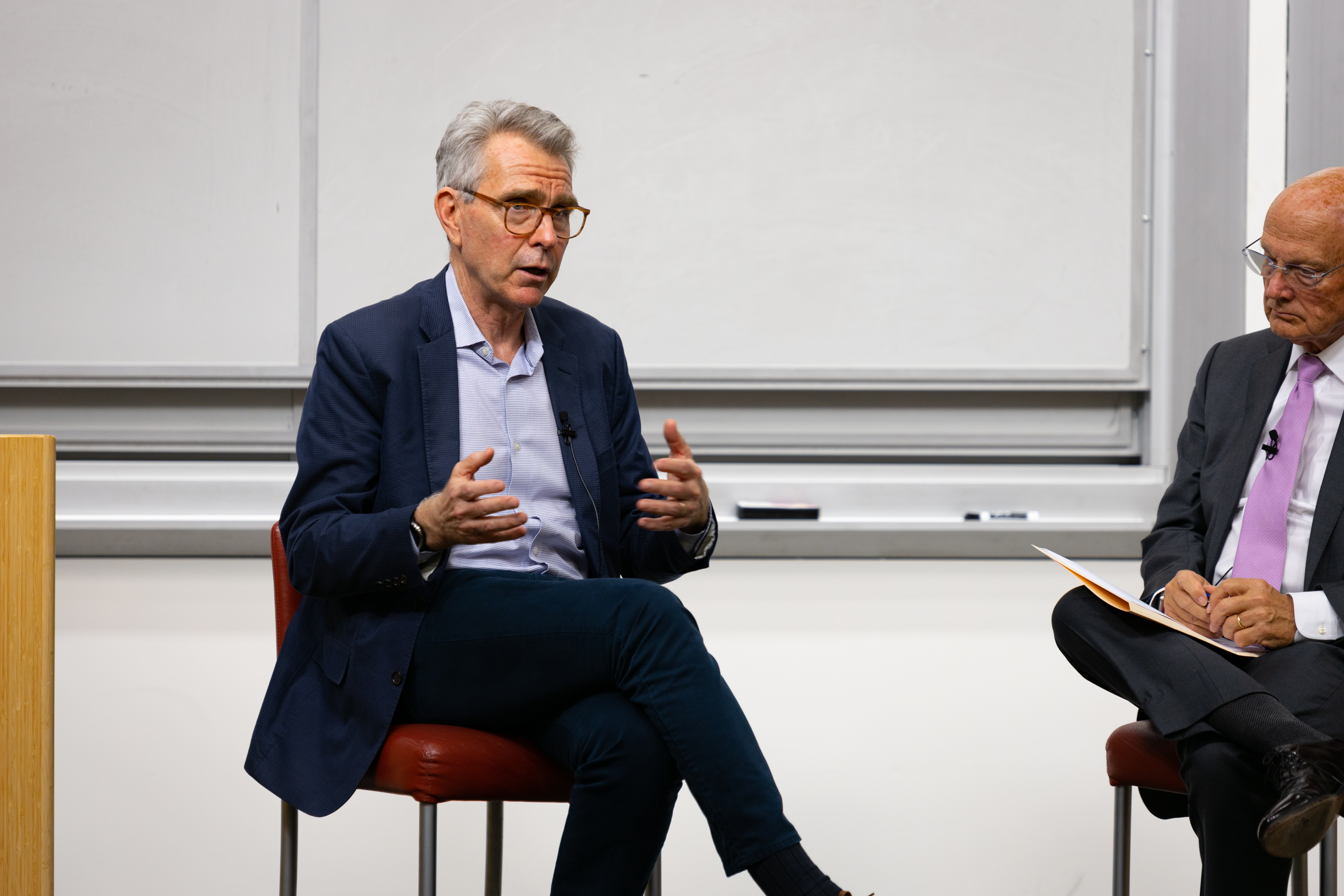Assistant Secretary of State for Energy Resources Geoffrey Pyatt projected a 50% growth in American export capacity by 2026 and described a new “post-post Cold War” era of ideological conflict with the Chinese government at a Stanford energy seminar hosted by the Hoover Institution on Monday.
Pyatt, who was born in California, arrived on campus this week as part of his itinerary for the U.S.-Japan Energy Security Dialogue. This initiative provides a space for the U.S. and Japan to strengthen natural resource cooperation and receive updates on academic research that could drive the transition to clean energy in public and private sectors, according to a State Department press release.
In a seminar hosted by U.S. Admiral James Ellis Jr., Pyatt spoke on topics ranging from plans for responsibly sourcing minerals to the geopolitics of China’s growing sphere of influence and questions of state financing mechanisms raised by the audience.
“Economic competition is good … but what’s more insidious is this political model, which denies individual freedom,” Pyatt said in reference to Chinese surveillance practices and what he views as a “lack of rule of law” and general sense of political opacity. “It’s the larger political and values competition where we want to make sure we prevail.”
Pyatt said the world has now entered a new “post-post Cold War era,” in a nod to a speech that Secretary of State Antony Blinken recently delivered at Johns Hopkins University. According to Pyatt, the U.S. has one adversary in this era: China.
China has a “very different idea about how society should be organized,” Pyatt said. Pyatt also called China “our nearest rival,” saying that it has surpassed the U.S. in terms of the number of consulates and touch points it has around the world.
“But I’m absolutely convinced that the United States has the most compelling offer,” he added.
Looking to the future, Pyatt said that now is an “extraordinarily exciting time” for young professionals to enter his field, though he added that the world is “very, very different” from the days of his formal education. Pyatt said the interconnectedness of the digital age calls for a deeply intentional approach to international relations.
He then pulled out his smartphone and held it up for the audience to see.
“The single most important change that has happened in the international economy in the 34 years that I’ve been in the State Department is right here,” he said. “It’s the reduction of distance that has been produced right here in Silicon Valley by innovations in communications technology.”
Integrated circuits, electric car batteries and sundry consumer materials of the like tend to be manufactured with a number of components using earth minerals that may include cobalt, lithium, zinc or copper. In a memorandum last year on the issue of sourcing such materials for national interests, U.S. President Joe Biden wrote, “The United States depends on unreliable foreign sources for many of the strategic and critical materials necessary for the clean energy transition.”
“Demand for such materials is projected to increase exponentially as the world transitions to a clean energy economy,” Biden wrote.
While Norway accounts for 22% of cobalt imported to the U.S. in recent years, it is the Democratic Republic of the Congo — where practices such as child labor and occupational hazards may occur in the absence of oversight — that leads the world in cobalt production.
In an interview with The Daily, Pyatt said that he plans to further develop a mineral security partnership with national allies that would “ensure the highest standards possible in accord with our own democracies and our own rule of law.”
“Battery passports,” which track the history of a battery’s parts as a means of supply chain transparency, have been gaining traction in industry, Pyatt said. Pyatt will visit a nearby startup this week that seeks to create a proprietary battery technology using solely American resources.
Despite the political, structural and technical challenges to upscaling energy production on the national and international stages, Pyatt pointed to the U.S. government’s prompt achievement of goals in reducing European dependence on Russian energy through increased liquefied natural gas exports and partnerships with national allies like Japan.
“If you had said in late February of 2022 that Germany within the space of a year would get to zero imports of Russian oil, gas and coal, nobody would have taken you seriously,” he said.
Later in the evening, Pyatt reflected on how his ambassadorial roles dealing with energy security issues in Ukraine and Greece regularly presented unique challenges but also came with the “enormous benefit” of experiencing the world and accumulating invaluable lessons.
For Pyatt, the most powerful moments from his time abroad were when ordinary citizens would walk up to him on the street and tell him: “Ambassador, you don’t know who I am, but … I want to say thank you on behalf of my country for the help the United States is offering.”
“That is an incredibly humbling thing and, you know, it doesn’t happen when you’re working in investment banking,” Pyatt said.
